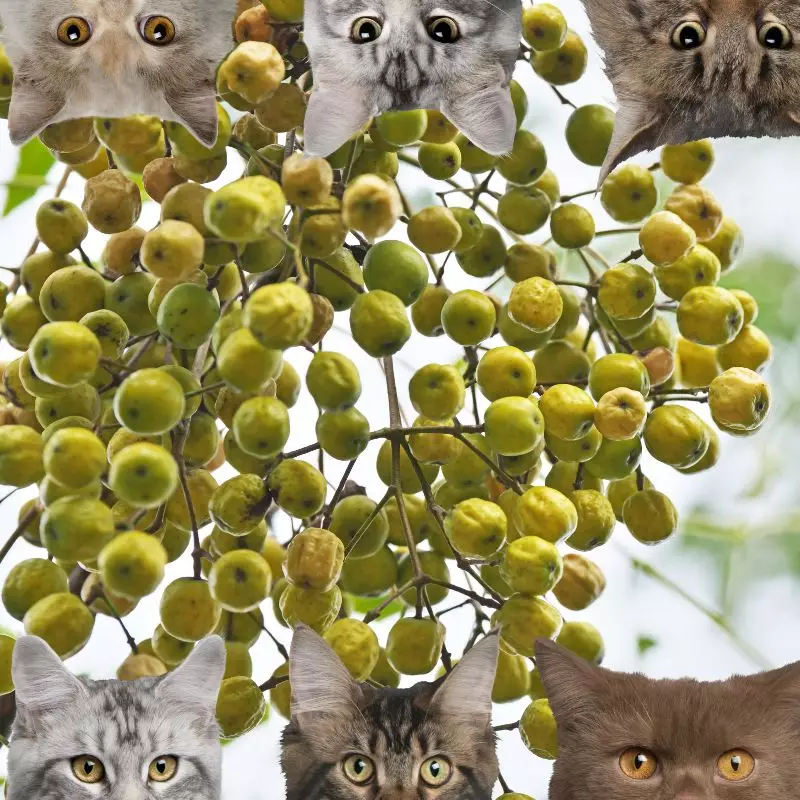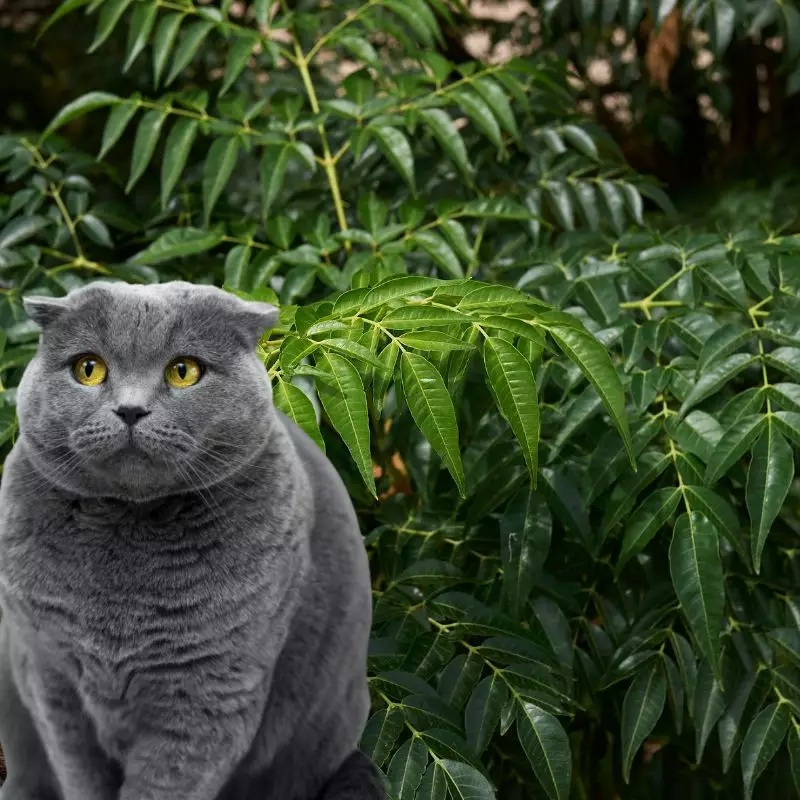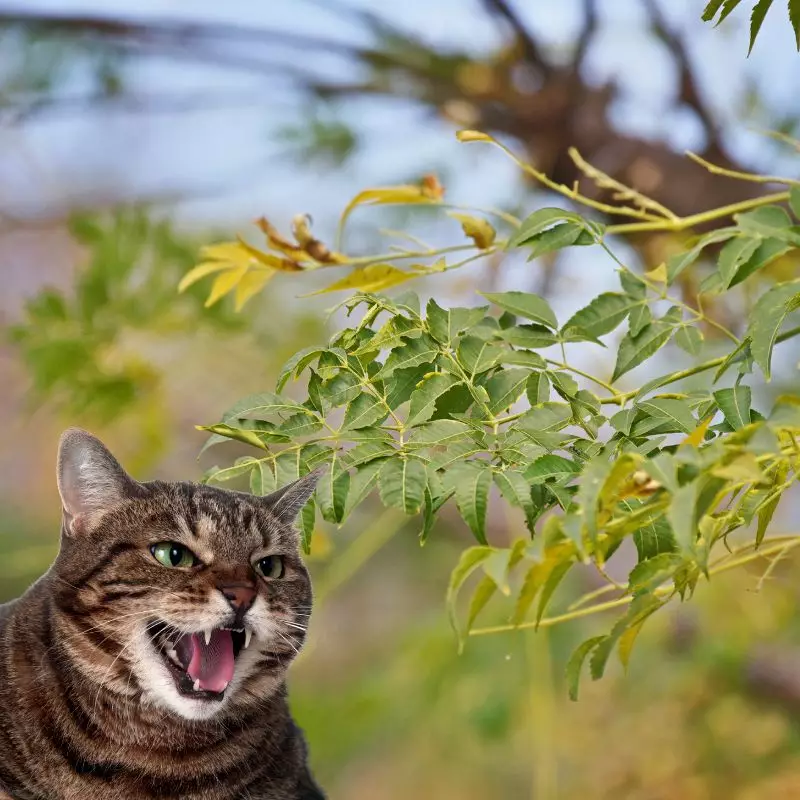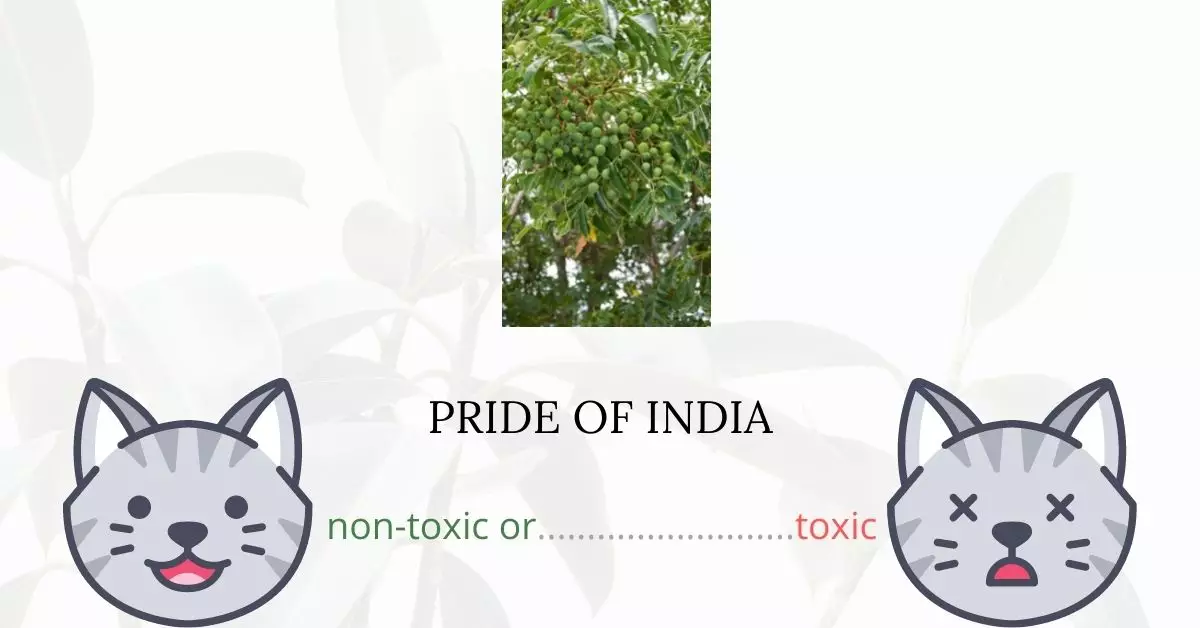Yes, the Pride-of-India plant is toxic to cats. When cats consume parts of this plant, especially if they ingest or break the hard endocarp of the fruit, they may be exposed to harmful toxins. These toxins, which include neurotoxins and unidentified resins, are primarily found in the fruits. It’s important to understand that the way animals chew and digest, as well as their inherent resistance to certain toxins, can vary widely, leading to different symptoms after ingestion.
This article was crafted in collaboration with a team of experienced DVMs (doctors of veterinary medicine). Through their expertise, we can provide precise and current knowledge on the potential dangers associated with various plants, focusing on Pride-of-India in this context. To ensure the veracity of our information, we have also cross-referenced our findings with high-authority websites such as ASPCA and PetMD.
Clinical Signs of Pride-of-India Poisoning in Cats

After exposure to the Pride-of-India plant, cats might display various symptoms due to the plant’s toxic constituents. These symptoms can manifest within a few hours post ingestion or contact. Here’s a breakdown of the clinical signs and the potential reasons behind them:
- Anorexia: This is a loss of appetite, which may result from the cat’s gastrointestinal discomfort after ingesting the plant.
- Depression: The neurotoxins in the plant may affect the cat’s central nervous system, leading to a depressive or lethargic state.
- Diarrhea: The cat’s body may attempt to expel the toxins through increased bowel movements, leading to diarrhea.
- Excessive Drooling and Salivation: The toxins in the Pride-of-India plant can cause irritation to the cat’s oral cavity, prompting excessive drooling and salivation.
- Seizures: The neurotoxins present in the plant can interfere with the cat’s neurological functioning, potentially leading to seizures.
- Vomiting: As with diarrhea, vomiting can be the body’s way of trying to rid itself of the ingested toxins.
- Weakness: Due to the combined effects of the toxins on the cat’s digestive and nervous systems, it may exhibit generalized weakness or lethargy.
It’s crucial for cat owners to recognize these signs and seek immediate veterinary care if they suspect their pet has come into contact with or consumed the Pride-of-India plant.
First Aid and Treatment of Pride-of-India Poisoning in Cats

If found early enough, the intake should be treated by inducing vomiting, administering activated charcoal, and providing supportive care.
If he starts to have seizures, the vet will give him an anti-seizure medication to help him stop. A prescription might be given to him to speed up his heart rate if he has decreased heart rate. His oxygen saturation will be low and his blood will not flow as it should if his heartbeat becomes too slow, leading to numerous issues. To combat vomiting and diarrhea, medications can be administered.
Recovery from Pride-of-India Poisoning in Cats

Poisoning from Pride of India can range from mild to moderate, depending on how much your cat ingests. The poison affects each cat differently. The chances of full recovery depend on how soon he receives veterinary care. If your cat already had a preexisting medical condition prior to ingesting pride of India, it is imperative he receives medical attention immediately.
Prevention of Pride-of-India Poisoning in Cats
If you have the pride of India on your property, teach your cat from an early age not to pick up pieces of it to chew on or consume if you have it.
If you love plants but have cats at home, check out these lists:





